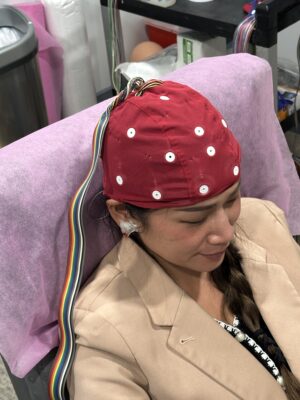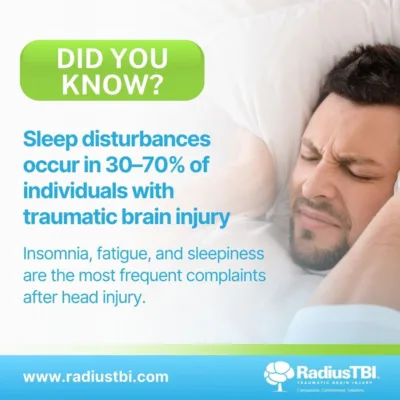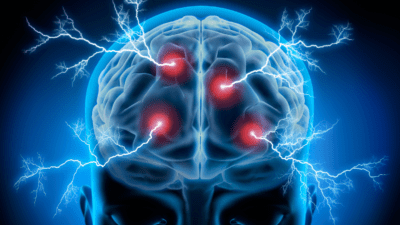Brain Injury In Children
For Parents
Protecting Your Child's Brain: Signs of Traumatic Head/ Brain Injury in Children
As a parent, the last thing you want to hear is that your child has received a head/ brain injury. Accidents happen even though you’ve done everything you could to protect the one you love. Turn to Radius TBI for the most advanced diagnostic and treatment methods for concussion and other brain injury in children with quality, compassionate care.
Our multidisciplinary team of neurologists, psychologists, and physical therapists treat pediatric concussion patients injured from:
- Car accidents
- Bicycle or tricycle accidents
- Football, soccer, cheerleading, and other sports
- Unintentionally being hit by an object such as a baseball
- Falling down stairs, off bunk beds, etc.
- Assault or physical force

- We provide physical and occupational therapy including vestibular balance training to restore balance, eliminate dizziness, and improve endurance.
- Neurotherapy, or neurofeedback, is used to teach patients how to self-regulate brain function. This cutting-edge biofeedback technique monitors heart rate, blood pressure, skin temperature, and brain waves. It then uses those to help you gain control over these processes through conditioning.
- Our state-of-the-art visual neuro-cognitive rehabilitation device assists in the treatment of patients suffering from reduced motor skills, reaction time, and cognitive function in addition to poor balance.
- To manage stress disorders stemming from concussions, we provide psychological counseling, which helps patients overcome anxiety, irritability, and mood swings post-injury.
- We may also add alternative treatments, including nutrition counseling and acupuncture, to improve patient outcomes.
Preventing and Managing Traumatic Brain Injury in Children
What Should I Do if I Think My Child May Have a Concussion or TBI?
When it comes to brain injury in children, such as concussions or traumatic brain injuries (TBIs), it’s crucial to be aware of more than just the obvious signs like unconsciousness and headaches.
Parents should watch out for several key indicators of brain damage after their child experiences a head injury. Recognizing these symptoms and taking appropriate action can ensure your child receives the necessary care.
Look out for emotional and mental changes: Following a head injury, your child may exhibit emotional or mental changes that seem out of the ordinary. These could include increased irritability, depression, anxiety, or sudden mood swings. Such alterations in behavior may indicate a brain injury, and it’s important not to overlook them.
Monitor sleep patterns: Pay attention to your child’s sleep patterns after a head injury. Difficulty falling asleep, staying asleep, or experiencing frequent awakenings can be signs of a brain injury. Disturbed sleep can significantly impact your child’s overall well-being, so addressing any changes in their sleep patterns is crucial.
Note attention and concentration issues: A head/ brain injury in children can sometimes lead to difficulties with attention and concentration. Suppose you observe that your child is having trouble focusing on tasks, maintaining attention for extended periods, or experiencing increased distractibility. It may be a sign of a concussion or TBI in that case.
Suppose you notice any of these symptoms or have concerns about your child’s well-being after a head injury. In that case, seeking professional help and having your child undergo a comprehensive neurological exam is crucial.
Specialists focusing on concussions and mild traumatic brain injuries, like Radius TBI, can provide the expertise and state-of-the-art equipment to detect even the mildest brain injuries.
What Every Parent Should Know Concussions/ Brain Injury in Kids:
Head/ Brain Injury in Children Facts
- Traumatic brain injury (TBI) is the leading cause of disability and death in American children and adolescents. Those at the most risk are age 0-4 and 15-19.
- Over 560,000 children under age 19 are treated in the ER for concussions and other brain injuries and then released, often receiving no further care.
- The effects may take decades to emerge, and the cause of delayed symptoms may never be identified as occurring from a concussion without immediate intervention.
- The younger a child is when sustaining a brain injury, the greater possibility there is for long-term developmental issues.
- Symptoms that often go unnoticed include losing interest in movies or other things that were previously favored, using immature language, and having difficulty expressing thoughts and emotions.
- About 21% of traumatic brain injuries occur from sports and recreational activities.
- Concussions can occur from injury to the neck and other places on the body, not just the head.
- Girls are at a greater risk for TBI than boys.
- From 2002 to 2006, there was a 62% increase in concussions and traumatic brain injuries treated in emergency rooms from falls in children under 15.
For Coaches
We understand the health of your players is your utmost concern. Before your team ever takes the field, we offer pre-season baseline testing to assess cognitive function and balance. After one of your team members sustains a head injury, our Neurologist and TBI team review screening results to determine the extent of the injury and decide whether a return to play is appropriate, as well as the extent and length of treatment.
For your convenience, we offer in-school evaluations as well as classroom education. Our extensive skills and experience treating traumatic brain injury in pediatric patients allows us to help children and teens understand the importance of prevention and learn observable physical and mental signs of an untreated concussion.
In the world of neuroscience, one of the advanced tools used to understand brain function is the Quantitative Electroencephalogram (QEEG), often referred to as brain mapping. But who interprets these intricate brain maps, and why...
Read More>>At Radius TBI, we pride ourselves on providing exceptional care for individuals suffering from traumatic brain injuries (TBI) and concussions. Our integrated medical team in Tampa, FL, includes some of the most respected and experienced...
Read More>>Did you know? Dealing with a traumatic brain injury (TBI) often means navigating a range of complications, one of the most prevalent being sleep disturbances. Surprisingly, 30-70% of individuals with a TBI experience some form...
Read More>>EEG, QEEG, and Ambulatory EEG are distinct forms of electroencephalography, each serving unique purposes in the diagnosis and monitoring of neurological conditions.
Read More>>




